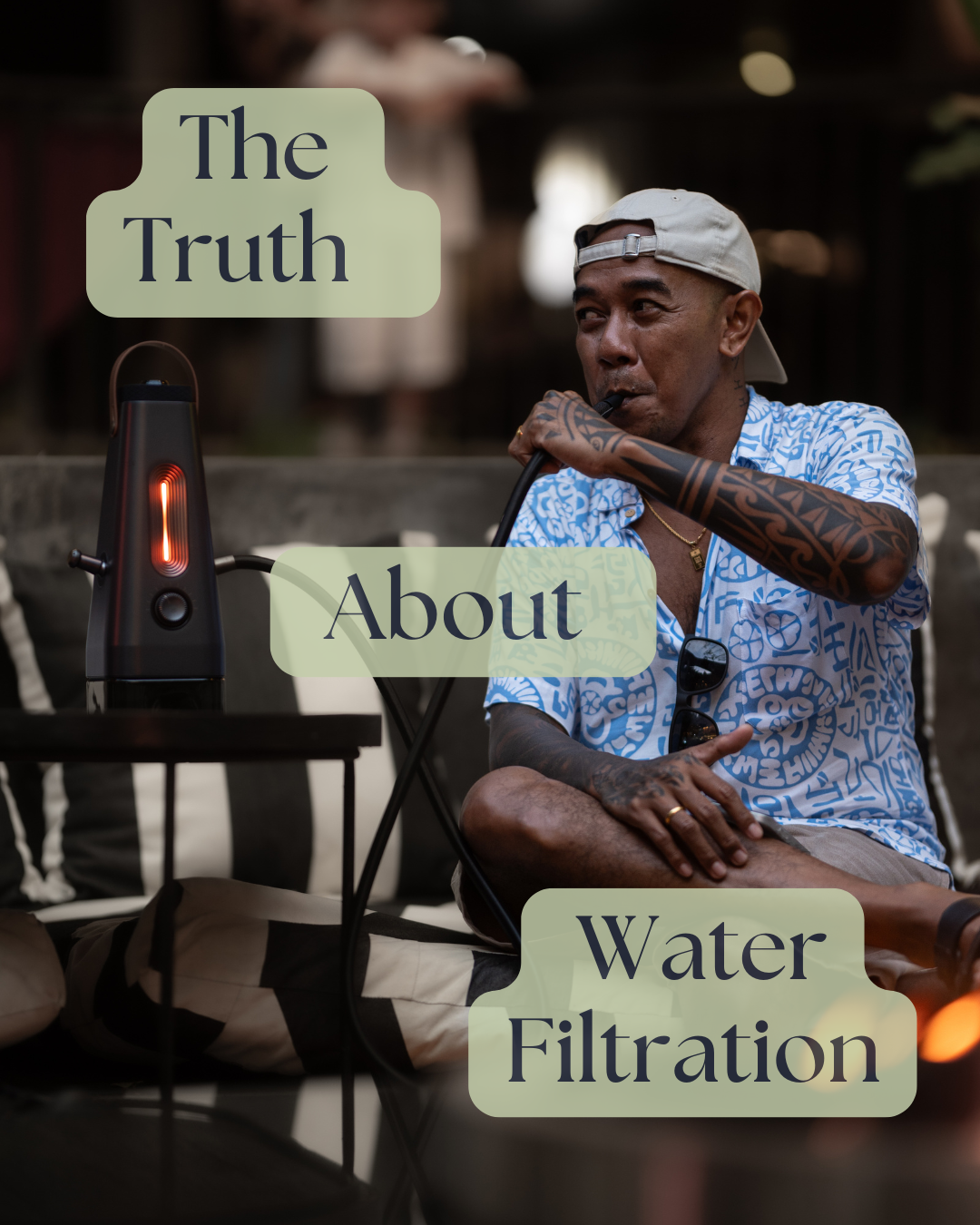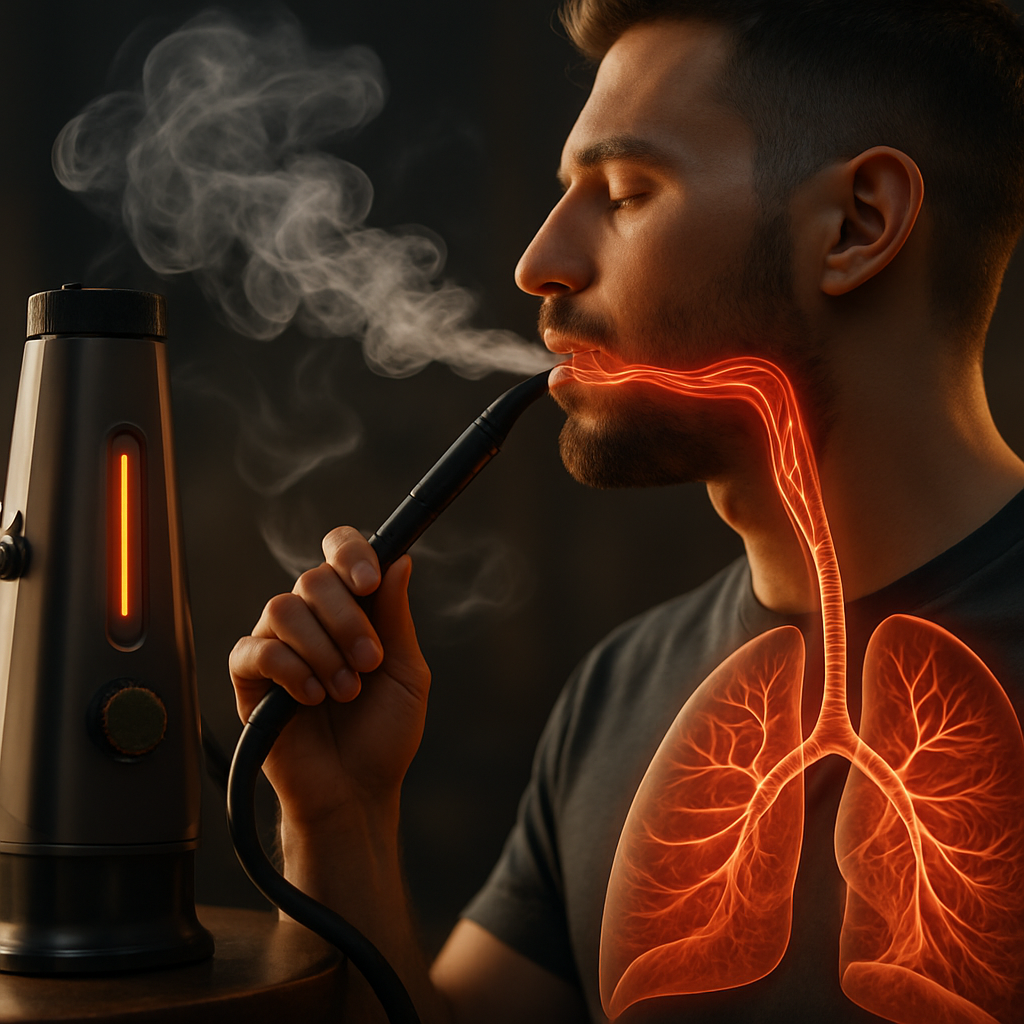Hookah Water Filtration

The Truth About Hookah Water Filtration
For centuries, the hookah has been a social symbol of relaxation and community. From bustling cafés in the Middle East to modern lounges across the world, it’s often seen as a smoother and “safer” alternative to smoking cigarettes. But is that perception accurate?
Many people believe the water in a hookah filters smoke, removing harmful substances before inhalation. This article dives deep into shisha water filtration and explores the science behind hookah filtration.
The Anatomy of a Hookah
Before we discuss filtration, it’s essential to understand how a hookah works. A traditional hookah consists of several main parts:
- Bowl: Holds the flavored tobacco (shisha) and charcoal.
- Stem: Connects the bowl to the water base.
- Water Base: The chamber that holds water.
- Hose: Delivers the cooled smoke to the mouthpiece.
- Purge Valve: Allows stale smoke to escape.
When the user inhales, air passes over the hot charcoal, heating the shisha. This creates smoke that bubbles through the water before reaching the mouthpiece. But does this bubbling truly clean the smoke? Or make it cooler?
What Happens When You Inhale Hookah Smoke?
The smoke you inhale is a complex mixture of nicotine, carbon monoxide, tar, volatile chemicals, and heavy metals. The water in the base acts as a cooling medium, reducing the harshness of the smoke. The smoother feeling often tricks users into thinking it’s less harmful.
But in reality, the toxic composition remains mostly unchanged.
The Role of Water in a Hookah
Water serves two primary purposes in a hookah:
- Cooling: The bubbling action lowers the smoke temperature, making it easier to inhale.
- Humidifying: It slightly moistens the smoke, giving it that thick, luxurious texture hookah lovers enjoy.
However, many assume that water also filters harmful components. While it does capture some soluble particles, the extent of this filtration is minimal.
Does Hookah Water Actually Filter Smoke?
The short answer: only slightly.
The water in a hookah can trap some water-soluble compounds, like a portion of nicotine and certain aldehydes. Yet, most toxins, including tar and carbon monoxide, pass straight through into your lungs.
The Cooling Effect vs. the Filtering Effect
Cooling makes smoke feel smoother, but it doesn’t necessarily mean cleaner. The “lightness” of the inhale can mask the presence of dangerous chemicals.
What Scientific Studies Reveal
According to research from the Centers for Disease Control and Prevention (CDC) and the World Health Organization (WHO), hookah water removes less than 5% of harmful toxins. Most hazardous substances remain intact. In fact, a single hookah session can deliver the smoke volume equivalent to 100 or more cigarettes.
Shisha Water Filtration – What Gets Trapped and What Doesn’t
Water mainly traps:
- Some nicotine
- Small water-soluble gases (like acetaldehyde)
But it does not effectively trap:
- Tar
- Carbon monoxide
- Heavy metals
- Carcinogenic hydrocarbons
Nicotine, Tar, and Heavy Metals in Hookah Smoke
While a portion of nicotine may dissolve in the water, tar and heavy metals remain airborne. These toxic compounds are responsible for long-term respiratory and cardiovascular issues.
Comparing Hookah Water Filtration to Cigarette Filters
Unlike cigarette filters (made from fibrous materials), hookah water does not efficiently capture microscopic solid particles. The perception of filtration is mainly psychological.
Hookah Filter Science – What Researchers Found
Laboratory studies have shown that water temperature, volume, and bubbling speed can affect smoke composition, but the changes are minor.
How Water Temperature and Volume Affect Filtration
Cooler water may condense a bit more nicotine, but it doesn’t significantly reduce overall toxicity. More water might slightly lower smoke density, but again, the filtration rate remains negligible.
Does Adding Fruit or Milk Change Anything?
Adding fruit slices, milk, or juice only alters flavor and aroma, not filtration. In some cases, non-water liquids can even introduce mold or bacterial growth in the base if not cleaned regularly.
The Health Impact of Incomplete Filtration
Because water doesn’t filter out most toxins, hookah smoke remains dangerous. It contains carcinogens, heavy metals, and ultrafine particles that reach deep into the lungs.
Comparing Hookah and Cigarette Toxicity
Studies show that a one-hour hookah session can deliver as much smoke as 100 cigarettes, and the carbon monoxide levels can be up to 11 times higher. The smoothness of the smoke makes it deceptively easier to inhale in larger quantities.
Can Hookah Filters Improve Safety?
Some modern hookah accessories include carbon filters or diffuser attachments. These can reduce some tar and nicotine levels, but no filter can make smoking completely safe. The only way to avoid exposure is to reduce or eliminate use.
Responsible Hookah Use – What Experts Recommend
- Use fresh, clean water for each session.
- Avoid sharing hoses to reduce health risks.
- Ensure good ventilation while smoking.
- Limit session time and frequency.
- Never believe water filtration makes it safe; it doesn’t.
FAQs About Hookah Water Filtration
Q1. Does hookah water filter smoke at all?
Yes, but only slightly. It traps a small amount of water-soluble compounds, not most toxins.
Q2. Is hookah smoke less harmful than cigarette smoke?
No. Hookah smoke can be equally or more dangerous due to prolonged exposure.
Q3. Does adding ice or fruit improve filtration?
No, it only changes flavor and temperature, not toxin levels.
Q4. How often should hookah water be changed?
After every session, to prevent bacterial buildup.
Q5. Can special filters make hookah safe?
They may reduce some toxins, but no method makes hookah smoking safe.
Q6. Why does hookah smoke feel smoother?
Because it’s cooled and moistened, not because it’s cleaner.
The Truth About Hookah Water Filtration
So, does hookah water filter smoke?
Only a little. The water cools the smoke, making it smoother, but not significantly cleaner. Most toxins remain intact, entering the lungs and bloodstream with each puff. The idea that water “purifies” hookah smoke is largely a myth backed by soothing aesthetics rather than science.
For those who enjoy hookah socially, awareness and moderation are key. Proper safety comes from understanding the science, not the smoke.



